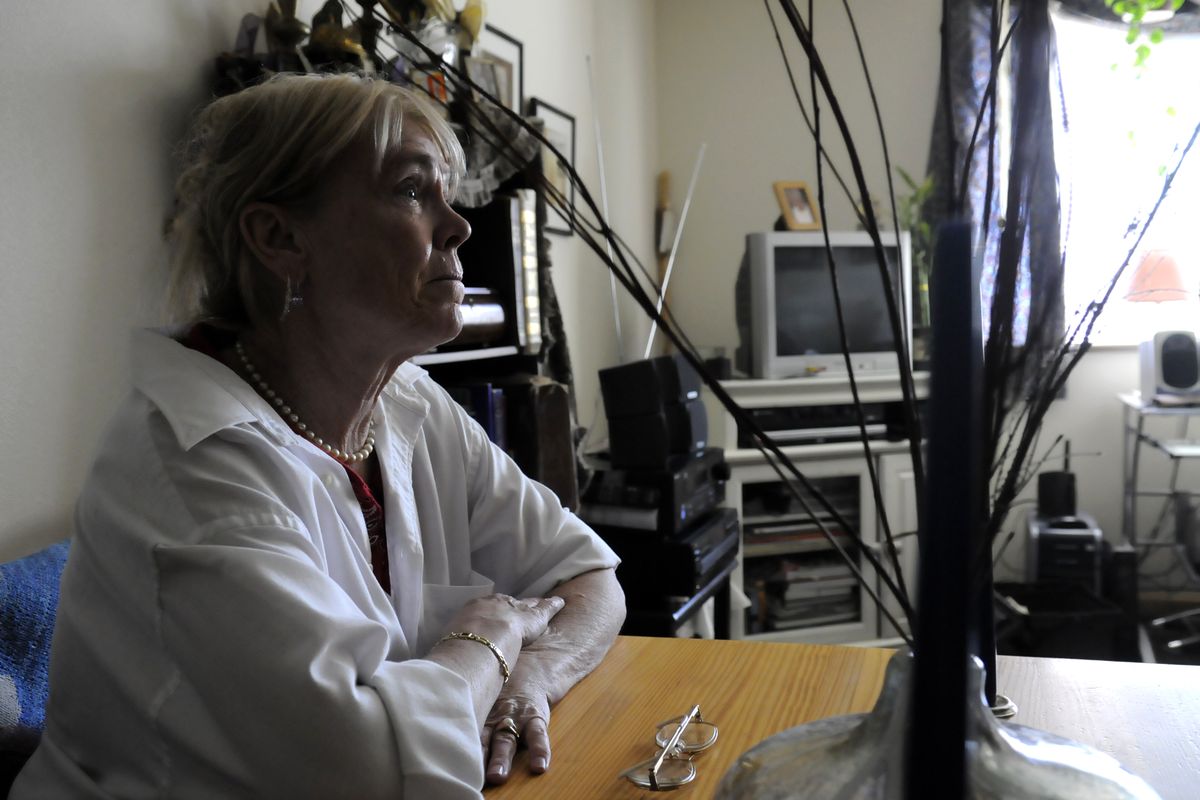More than a store
St. Vincent de Paul provides housing for North Idaho’s neediest

The two-bedroom apartment William Plew recently landed in Post Falls is right across from his son’s school.
With assistance from St. Vincent de Paul of North Idaho, the 55-year-old formerly homeless man is taking steps toward self-sufficiency after years of instability. In 2004, he ended up on the streets after a disabling work injury. He discovered St. Vincent’s men’s shelter and credits the nonprofit with saving his life, sweeping away hopelessness and suicidal thoughts.
“I would still be hanging on a string somewhere,” Plew said. “It’s made all the difference in the world. I have food in the house. My bills are paid. It’s just amazing. I feel like I’m getting it all back, little by little.”
Over the past two decades, St. Vincent de Paul has become a dominant provider of housing in North Idaho for homeless, disabled and low-income residents. Starting in the early 1990s, the nonprofit has been buying, leasing and, as of late, building housing in three northern counties. It has happened during a period that saw housing values skyrocket, particularly in Kootenai County, increasing worries that many people would be priced out of the community.
St. Vincent’s board president, John Bruning, a Coeur d’Alene city councilman, said people frequently are surprised when they learn what’s offered by the nonprofit better known for its thrift store. “They say: ‘I thought you were just a little junk store on Government Way.’ I hear that over and over and over,” Bruning said with a laugh. “No, we’re a little bit more than that.”
The 12-unit St. Vincent men’s shelter was the first housing opened by the Coeur d’Alene nonprofit about two decades ago. On Wednesday, St. Vincent broke ground on an apartment complex that, when complete, will bring to 255 the number of housing units the nonprofit offers in Kootenai, Bonner and Benewah counties. St. Vincent’s provides housing with help from federal, state and local funding sources.
The housing complexes frequently open with waiting lists, but the nonprofit continues to chip away at the problem of providing low-income housing for seniors, veterans, people with mental illness and other residents. In addition, St. Vincent’s rapid re-housing program provides financial assistance to help people like Plew afford their own apartments.
“In my mind, St. Vincent’s is probably the organization that is furthest ahead and has the longest awareness on this issue than anybody,” said Mike Kennedy, a city councilman who has focused on low-income housing issues. “But for them, we would be in a much, much worse situation.”
The new Kathy Reed House, named for a longtime St. Vincent’s employee, will offer 37 units for low-income seniors next door to an apartment building – the Lynn Peterson House – the nonprofit completed in December. The Peterson building offers 14 subsidized housing units for people with mental illnesses.
“We have a safe haven here,” said Susan Duchow, who moved into a one-bedroom apartment in the Lynn Peterson House in March. Duchow previously spent time in St. Vincent’s women’s shelter and in transitional housing. St. Vincent, she said, “accepts an individual unconditionally. They understand disability. Their philosophy is, if you need a place to live, we will make a point of doing that as best we can.”
Activity with St. Vincent has increased in recent years, said Janet Lovell-Smith, grant programs manager for the Idaho Housing and Finance Association, which administers affordable-housing resources statewide and has provided federal funding for numerous St. Vincent projects.
“St. Vincent, in the last year alone, has opened a H.E.L.P. Center, implemented the Homeless Prevention and Rapid Re-Housing (HPRP) stimulus program for the northern region, started a new permanent housing program (Angel Arms), and opened a warming center,” Lovell-Smith wrote in an e-mail. “St. Vincent is working hard to address needs in their community, needs for which previous resources did not exist.”
St. Vincent de Paul in North Idaho was established in 1946 through St. Thomas Catholic Church, of Coeur d’Alene. The nonprofit was able to use money earned at its thrift store to purchase a nearby house in 1990 for a social service office and the men’s shelter. Two years later, it bought a second nearby house as a shelter for women and children.
In 1994, the nonprofit opened a 16-unit Transitional Housing Center to help homeless families learn to become self-sufficient with classes in parenting, money, nutrition and other topics. The transitional housing program has grown to 42 units in Coeur d’Alene and Post Falls. Also starting in the mid-1990s, the nonprofit began acquiring affordable rental housing in Kootenai, Bonner and Benewah counties and now owns or manages 68 low-income units for seniors and 70 multifamily units.
The construction of the two new properties marks the continuation of the nonprofit’s partnership with the city of Coeur d’Alene, which leased its old library to St. Vincent’s last year to provide services for poor and homeless people. St. Vincent’s is leasing three acres from the city for the Kathy Reed and Lynn Peterson houses for $1 a year for 75 years, Bruning said.
Mayor Sandi Bloem said the deal makes sense for the city, which has been seeking ways to provide more affordable and work force housing.
“Everyone should have a home,” Bloem said at the groundbreaking ceremony. “This is one more big step toward that goal.”